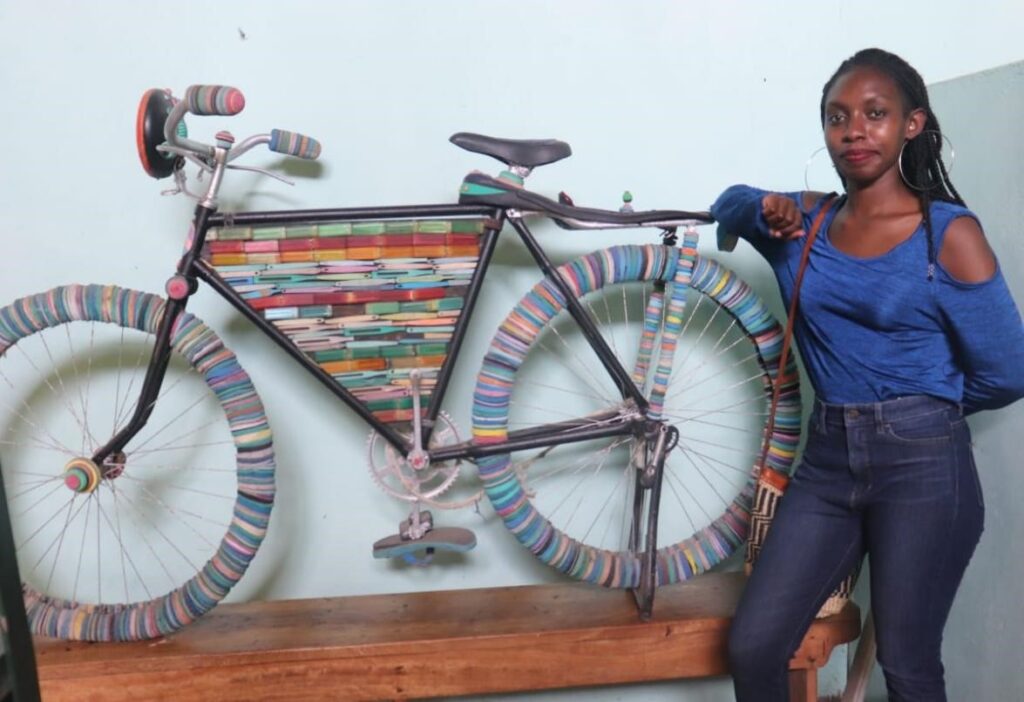Watamu, Malindi became a city where sparks of waste management is becoming one of its essence. A recent development by 3 different but collaborated groups targeted the well-being of beaches within its vicinity. The intention began by cleaning waste products such as plastics, nets, flip-flops, etc… and recycling them to make art pieces, building blocks, fridge magnets, key chains, wrist bands, upcycling wine bottles and other sculptural designs like turtles, lizards, dolphins among others. The act not only prohibits the negative consequences of marine litter but also created significant awareness of the marine environment in the minds of the local people.

This initiative is backed and facilitated by EcoWorld, a renowned Malaysian property development company. EcoWorld aids recycling the waste products from the community that leads to a circular economy. Such economical loops are made possible because Ecoworld buys waste plastics from the community, shreds it and sells it to companies that deal with plastics. Consequently, those companies make other products that go back to the shelves of shops and the community upon purchase. Some of the potential buyers of these shredded plastics are companies such as GeoPlastics and individuals who are in the export industry. The way EcoWorld devised the business model is clearly attractive. It buys the hard plastic for KES 10 per kilo and then sell the shredded ones for KES 30 per kilo while persons that facilitate the beach clean ups are a paid a revenue of KES 500 each per day.
At the moment, EcoWorld engages the Blue-Team group that comprises of 25 people in facilitating the clean ups once or twice a week. With COVID-19 pandemic affecting the livelihoods of lots of people, EcoWorld has incorporated more groups in facilitating the beach clean ups such as Persons with Disabilities, Women groups and Fishermen groups.
Besides these economic benefits in litter recycling, EcoWorld has also facilitated extensive data collection and researches on the type of waste found during the clean ups. This contributes to the writing of scientific papers. And because of the sensibility of the research findings, national policies are being influenced and even being revised. A simple example is the ban of polythene paper bags in Kenya.

EcoWorld also engages children and youth in school in artwork using the plastic waste that is not shredded. This teaches them to replicate such artwork when they are at home, hence, reusing the waste plastic around them.
A team from the Mathare Environmental Conservation Youth Group (MECYG) had the privilege to participate in a workshop at EcoWorld on July 12th, 2021. This initiative was a follow up of the Design Thinking Workshop and Business Development meetings in which the Mathare youth are being empowered with skills for their Recycling Programme back in Mathare.
“Visiting Eco World and participating in the workshop has filled in the knowledge gap that we had. It was great seeing the recycling machines in action and we even made some products. From here, we are taking home new ideas that we can incorporate in our recycling programme. Thank you, UN-Habitat, and Eco World for this informative session” Isaac Muasa, Programme Coordinator, MECYG



